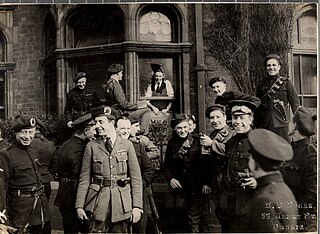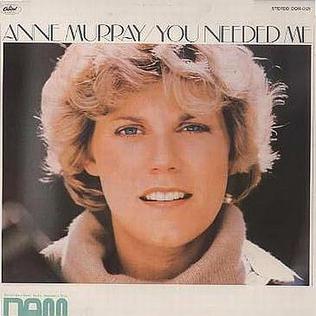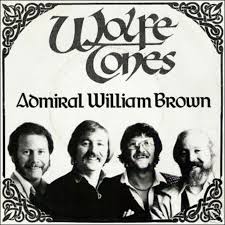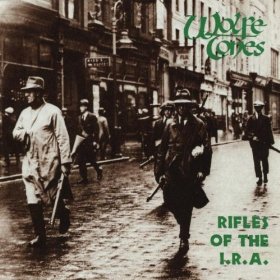
Theobald Wolfe Tone, posthumously known as Wolfe Tone, was a revolutionary exponent of Irish independence and is an iconic figure in Irish republicanism. Convinced that so long as his fellow Protestants feared to make common cause with the Catholic majority, the British Crown would continue to govern Ireland in the interest of England and of its client aristocracy, in 1791 Tone helped form the Society of United Irishmen. Although received in the company of a Catholic delegation by the King and his ministers in London, Tone, with other United Irish leaders, despaired of constitutional reform. Fuelled by the popular grievances of rents, tithes and taxes, and driven by martial-law repression, the society developed as an insurrectionary movement. When, in the early summer of 1798, it broke into open rebellion, Tone was in exile soliciting assistance from the French Republic. In October 1798, on his second attempt to land in Ireland with French troops and supplies, he was taken prisoner. Sentenced to be hanged, he died from a reportedly self-inflicted wound.
"The Men Behind the Wire" is a song written and composed by Paddy McGuigan of the Barleycorn folk group in the aftermath of Operation Demetrius. The song describes police raids in Northern Ireland by British security forces during the Troubles, and the "men behind the wire" refers to those interned without trial at HM Prison Maze, HM Prison Magilligan and onboard HMS Maidstone.
In the music of Ireland, Irish rebel songs are folk songs which are primarily about the various rebellions against British Crown rule. Songs about prior rebellions are a popular topic of choice among musicians which supported Irish nationalism and republicanism.
The Wolfe Tones are an Irish rebel music band that incorporate Irish traditional music in their songs. Formed in 1963, they take their name from Theobald Wolfe Tone, one of the leaders of the Irish Rebellion of 1798, with the double meaning of a wolf tone – a spurious sound that can affect instruments in the string family of the orchestra.

"Come Out, Ye Black and Tans" is an Irish rebel song referring to the Black and Tans, or "special reserve constables", recruited in Great Britain and sent to Ireland from 1920, to reinforce the Royal Irish Constabulary (RIC) during the Irish War of Independence. The song was written by Dominic Behan as a tribute to his Irish Republican Army (IRA) father Stephen, who had fought in the War of Independence, and is concerned with political divisions in working-class Dublin of the 1920s.

Derek Warfield is an Irish singer, songwriter, historian, and a former member of the musical group The Wolfe Tones.
Tone's Grave, often referred to as Bodenstown churchyard, was written by Thomas Davis (1814–1845), the Young Ireland leader, and published first in their newspaper The Nation. It was written following his visit to the grave of Theobald Wolfe Tone in Bodenstown, County Kildare, in 1843 when he found Tone's grave unmarked but guarded by a local blacksmith who would allow nobody to set foot on it.

"You Needed Me" is a song written by Randy Goodrum, who describes it as being about "unconditional undeserved love". It was a number-one single in the United States in 1978 for Canadian singer Anne Murray, for which she won a Grammy Award. In 1999, Irish pop band Boyzone recorded a hit cover of the song that reached number one on the UK Singles Chart.

Seán Cronin was a journalist and former Irish Army officer and twice Irish Republican Army chief of staff.
"Kevin Barry" is a popular Irish rebel song recounting the death of Kevin Barry, a member of the Irish Republican Army (IRA) who was hanged on 1 November 1920. He was 18 years old at the time. He is one of a group of IRA members executed in 1920–21 collectively known as The Forgotten Ten.

Gregory Lloyd Campbell is a British Democratic Unionist Party (DUP) politician who has been the Member of Parliament (MP) for East Londonderry since 2001. As of 2024, Campbell is Northern Ireland's longest-serving current MP. He is the DUP Spokesperson for International Development.
Kevin "Kiev" Connolly is an Irish songwriter, producer and musician. His group, Kiev Connolly and The Missing Passengers, represented Ireland at the 1989 Eurovision Song Contest.

The Wolfe Tone Societies (WTS) (Irish: Muintir Wolfe Tone) is an Irish republican group whose chief objective is the establishment of a 'united Irish Republic.' It evolved from the commemorative Directories which the IRA helped set up in 1963 to mark the bicentenary of the 1763 birth of Wolfe Tone. In 1964 the Directories were dissolved and replaced with the Wolfe Tone Society. The publication of the Wolf Tone Society from 1965 onward was called Tuairisc.

"Admiral William Brown" is a song written and first performed by the Wolfe Tones in 1982, the year of the Falklands War between Argentina and the United Kingdom. The song recounts the biography of Irish-Argentine admiral William Brown (1777–1857), and contains denunciations of imperialism, colonialism and the United Kingdom. It was included in the group's 1983 album, A Sense of Freedom.

Up the Rebels is the second album by Irish folk and rebel band The Wolfe Tones. The title, 'Up the Rebels' is a popular slogan in support of the Irish Republican Army.

Rifles of the I.R.A. is the fourth album by Irish folk and rebel band The Wolfe Tones. The album title Rifles of the I.R.A. makes reference to the Irish Republican Army (IRA).

Let the People Sing is the fifth album by Irish folk and rebel band The Wolfe Tones. The album features a number of political songs including Come Out Ye Black and Tans and A Nation Once Again. James Connolly is about the execution by firing squad of the socialist revolutionary after the Easter Rising of 1916, whilst Long Kesh is a song which protests IRA imprisonment at Long Kesh prison. Sean South of Garryowen is rather controversial as it honours the legacy of Irish Republican soldier Seán South who was a prominent fascist and anti-Semitic conspiracist.

You'll Never Beat the Irish is the sixteenth album by Irish folk and rebel band The Wolfe Tones. This album was the first recorded and released by the band without founding member Derek Warfield, who had departed earlier the same year.

Child of Destiny is the eighteenth album by Irish folk and rebel band The Wolfe Tones.

"Treat Me Daughter Kindly" is a 1967 country song written by Cyril Curran and performed by Irish showband singer Pat Lynch and his band, the Airchords.













